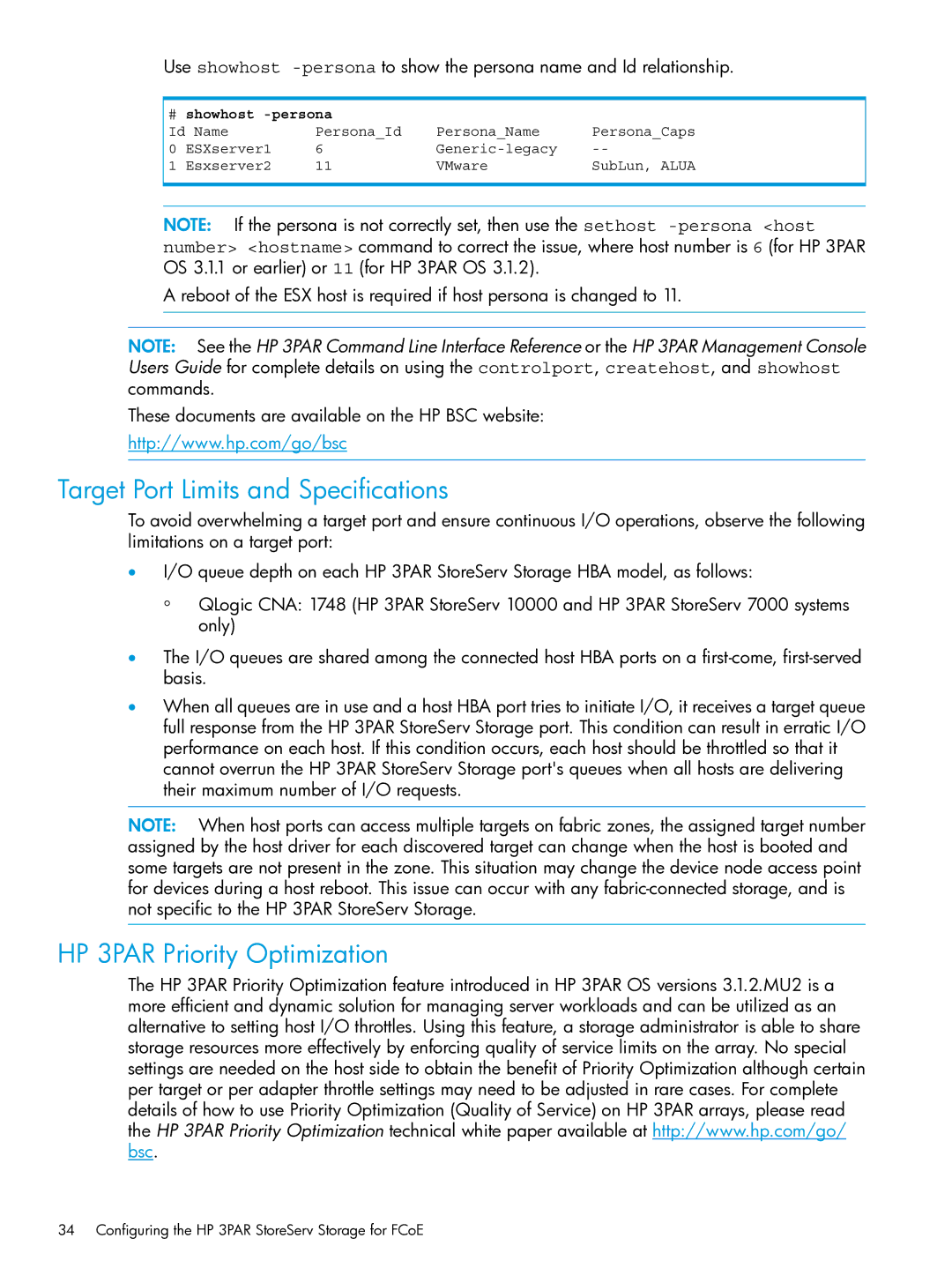
Use showhost
#showhost -persona
Id Name | Persona_Id | Persona_Name | Persona_Caps | |
0 | ESXserver1 | 6 | ||
1 | Esxserver2 | 11 | VMware | SubLun, ALUA |
NOTE: If the persona is not correctly set, then use the sethost
A reboot of the ESX host is required if host persona is changed to 11.
NOTE: See the HP 3PAR Command Line Interface Reference or the HP 3PAR Management Console Users Guide for complete details on using the controlport, createhost, and showhost commands.
These documents are available on the HP BSC website:
http://www.hp.com/go/bsc
Target Port Limits and Specifications
To avoid overwhelming a target port and ensure continuous I/O operations, observe the following limitations on a target port:
•I/O queue depth on each HP 3PAR StoreServ Storage HBA model, as follows:
◦QLogic CNA: 1748 (HP 3PAR StoreServ 10000 and HP 3PAR StoreServ 7000 systems only)
•The I/O queues are shared among the connected host HBA ports on a
•When all queues are in use and a host HBA port tries to initiate I/O, it receives a target queue full response from the HP 3PAR StoreServ Storage port. This condition can result in erratic I/O performance on each host. If this condition occurs, each host should be throttled so that it cannot overrun the HP 3PAR StoreServ Storage port's queues when all hosts are delivering their maximum number of I/O requests.
NOTE: When host ports can access multiple targets on fabric zones, the assigned target number assigned by the host driver for each discovered target can change when the host is booted and some targets are not present in the zone. This situation may change the device node access point for devices during a host reboot. This issue can occur with any
HP 3PAR Priority Optimization
The HP 3PAR Priority Optimization feature introduced in HP 3PAR OS versions 3.1.2.MU2 is a more efficient and dynamic solution for managing server workloads and can be utilized as an alternative to setting host I/O throttles. Using this feature, a storage administrator is able to share storage resources more effectively by enforcing quality of service limits on the array. No special settings are needed on the host side to obtain the benefit of Priority Optimization although certain per target or per adapter throttle settings may need to be adjusted in rare cases. For complete details of how to use Priority Optimization (Quality of Service) on HP 3PAR arrays, please read the HP 3PAR Priority Optimization technical white paper available at http://www.hp.com/go/ bsc.
34 Configuring the HP 3PAR StoreServ Storage for FCoE
